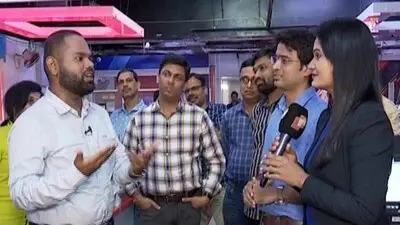Recommended Stories
Taking note of repeated summons by a division bench of the Allahabad High Court to various senior officials of the Uttar Pradsh government, a bench of justice R V Raveendran and A K Patnaik of the Supreme Court censured the high courts` tendency to seek personal appearance of senior government officials to attend to "all and sundry matters".
"It is a matter of concern that there is growing trend among a few judges of various high courts to routinely and frequently require the presence of senior government officers, including those of the level of secretaries, to seek insignificant clarifications," the bench said.
"The court should desist from calling senior officers for all and sundry matters as that would amount to the abuse of judicial power," said the bench, in a recent ruling.
"The senior officers of the government are in-charge of the administration of the state and have their own busy schedules," it added.
"Requiring the presence of senior officers of the government should be as a last resort, in rare and exceptional cases, where such presence is absolutely necessary," the bench cautioned.
Pointing out that the high court has vast powers under Article 226 of the Constitution, including the power to summon senior government officials to assist the court in administration of justice, the bench however, added, that the court`s real power lies in common man`s faith and trust in it.
"The real powers of courts is not in passing decrees and orders, nor in punishing offenders and contemnors, nor in summoning senior officers, but in the trust, faith and confidence of common man in judiciary," the bench said.
"Such trust and confidence should not be frittered away by unnecessary and unwarranted show or exercise of power.
Greater the power, greater should be responsibility in exercising such powers," the bench counselled.
Spelling out "well-settled norms and procedure" to summon officials, the bench said that besides summoning contemnors of courts, the high courts can also seek the presence of officials for their "assistance in understanding complex policy or technical issue."
They can also be summoned where high courts find that "an officer is deliberately withholding any information with ulterior motives from the court," the bench added.
Taking note of a similar instance, in a different case, of an Uttarkhand High Court judge`s penchant for summoning senior government officials, the bench, said that even a noble or bonafide belief alone of a judge cannot be a valid legal reason to summon officials.
Noting that the sincere belief of the Uttarkhand High Court`s judge that "by requiring the presence of senior officers, he could expedite matters and render effective justice," the bench said, "It is not sufficient that the object of the judge is noble or bonafide."
"The process of achieving the object should be just and proper, without exceeding the well-recognised norms of judicial propriety," the bench said.
The bench gave its ruling on an appeal by the Uttar Pradesh government challenging an Allahabad High Court judge`s order, involving repeated summons to various senior government officials, including its Public Works Department principal secretary and principal secretaries of its finance and revenue departments.
The apex court, in its order noted that the high court judge had been summoning various government officials during the hearing of state native Jasvir Singh plea seeking compensation at market rate for his land acquired by the government.
The bench also noted that during the hearings, the high court judge had been coaxing the officials to reach an out-of-court settlement with the petitioner and give him the compensation at the market rate.
"At all events the court should avoid directing senior officers to be present in the court to settle the grievances of individual litigants for whom the court may have sympathy," the bench warned.
While counselling high courts to avoid summoning senior government officials at the drop of a hat, the bench also took note of the apex court`s another judgement, delivered by a bench of Justice Markandey Katju, while deprecating the Gujarat High Court`s tendency to summon officials.
The December 2007 ruling by Justice Katju had followed on a Gujarat High Court order, summoning state chief secretary and law secretary to the court so that "so that it can have a direct dialogue with them that what effective steps they are taking to provide sufficient staff to the office of the Government Pleader/Public Prosecutor and to avoid delay at every stage".












